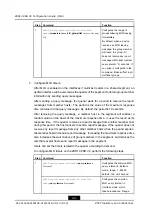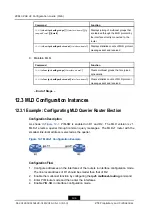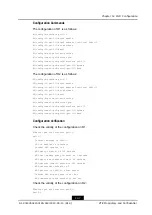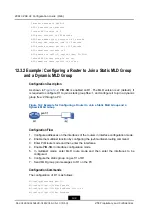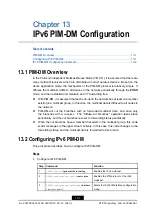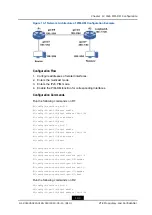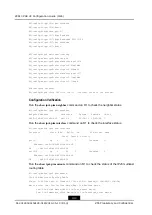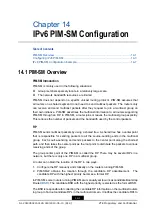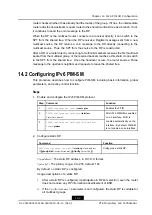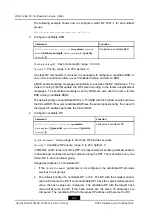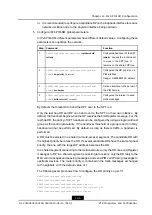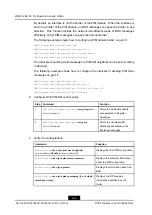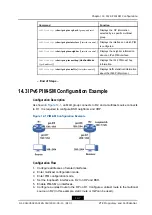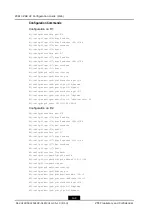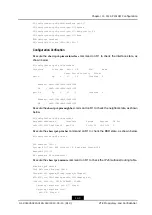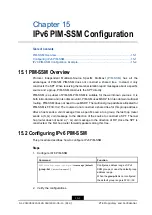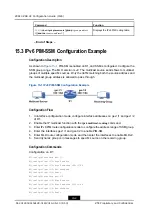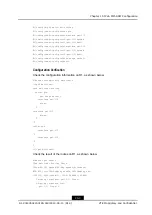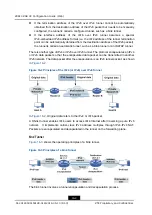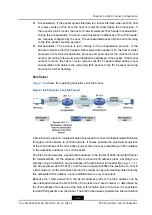
ZXR10 ZSR V2 Configuration Guide (IPv6)
all the PIM routers in the PIM domain in a unified way. Each PIM router, according to the
similar Hash rules, elects the one with the highest priority as the formal RP from the same
candidate RP set. Candidate RPs are configured manually.
Messages Types
In PIM-SM, there are the following types of messages.
l
Hello message: The router interfaces on which PIM-SM runs send Hello messages
periodically to the neighbor interfaces in the same segment to establish a neighbor
relationship. Hello messages are also used for routers running MLD to elect the DR.
l
Register message: When receiving a multicast packet sent by a host in the local
network, the DR encapsulates the packet in a Register message and sends it to the
RP through unicast. The source address in the IP header of the Register message is
the address of the DR, and the destination address is the address of the RP.
l
Register-Stop message: The RP unicasts a Register-Stop message to the sender of
the Register message to inform it stop sending Register messages.
l
Join/Prune message: This message is forwarded in the direction to the source or
the RP. A Join message is used to construct a source tree or a shard tree. When a
receiver leaves a group, it sends a Prune message to prune the source tree or the
shard tree. This message contains the joining information and pruning information
about the multicast route entities. The Join message and the Prune message are in
the same packet. Either message can be null.
l
Bootstrap message: A route needs to send Bootstrap messages on all interfaces
except the interface on which the Bootstrap message is received. This message is
generated on the BSR and forwarded by all routers.
l
Assert message: When there are several routers on a multi-access network and a
multicast group packet is received on an egress interface of a router, it is necessary
to use the Assert message to designate a forwarder.
l
Candidate-RP-Advertisement:
A
candidate
RP
unicasts
Candidate-RP-Advertisement to the BSR periodically to advertise the set of group
addresses served by the Candidate RP.
PIM-SM Features
The routers running PIM-SM discover each other and maintain the neighbor relationship by
exchanging Hello messages. In the multi-access network, the Hello messages also contain
the priority information about routers. The DR is elected according to this parameter.
The multicast source or the first hop router (the DR connecting to the source directly)
encapsulates a packet in a Register message, and then sends it to the RP through a unicast
router. When receiving the Register message, the RP de-encapsulates the messages to
take out the packet, and then sends the packet to the receivers of the group along the
shared multicast tree.
Each host acting as a receiver joins the multicast group through the IGMP member report
message. The last hop router (or the DP in the multi-access network) sends the received
Join message to the RP level by level. After receiving the Join message, the intermediate
14-2
SJ-20140504150128-018|2014-05-10 (R1.0)
ZTE Proprietary and Confidential

